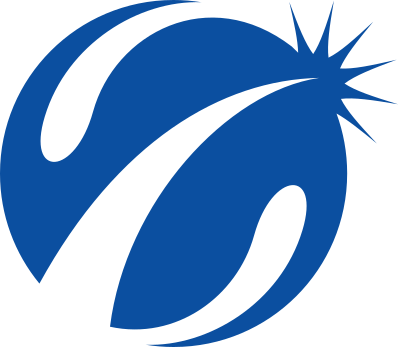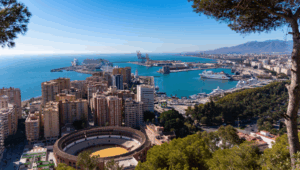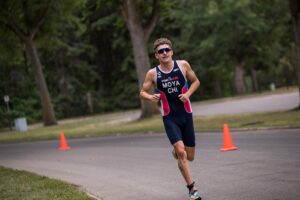Hunting the million dollar payday
Like Gwen Jorgensen in short course, Daniela Ryf had a perfect 2015 season in the long course realm. To start off, Ryf won Challenge Dubai, keeping her in the running for the $1 million payoff for winning the Challenge Triple Crown. After wins at Challenge Fuerteventura and 70.3s at Mallorca and Rapperswil, Ryf broke Chrissie Wellington’s course record and had a 10:58 margin of victory at Ironman Frankfurt. At Ironman 70.3 Worlds in Zell Am See , she won by 11:33 and also took the second leg of the Challenge Triple Crown. Then, on a hot and debilitating day at Kona, she won by 13 minutes and 2 seconds.
After such a season, a doctor might prescribe some R&R. But with $1 million on the line – if she can take the third leg of the Triple Crown on December 5 at Bahrain – super coach Brett Sutton has Ryf in a five week training block in Thailand aiming at her best performance of the year.

Slowtwitch: You had a good career in short course triathlon – 7th at the 2008 Olympics, several 3rd place finishes on the ITU circuit in 2008 and 2009, and in 2009 you finished 4th for the WCS series. Did you think you would spend the rest of your career in short distance?
Daniela Ryf: No. I always wanted to try 70.3. After the Olympics in London [where she finished an off-form 40th due to a lingering illness] I started non-drafting races and it reminded me I liked these better, as I am a strong cyclist and they suited me. That’s why I started to race 70.3 in 2013.
ST: Did your illnesses affect that decision to go longer? In 2011 and 2012, you spent a lot of time in doctors’ offices.
Daniela: I had problems with my stomach starting with a flu, which I caught in the 2010 WCS race in Seoul [which she won]. It took 2 years to get over it. I got nausea when I trained hard, which made it impossible to get fit. The weak immune system also made it hard to train, and I constantly got sinus infections.
ST: How did this affect your view of your sport?
Daniela: It’s discouraging when you put in the effort, but don’t get the results. I did that for 2 years while I was sick from 2010-2012. I trained hard, probably too hard, and my health would not get better. This was one of the hardest things for me, as I couldn’t progress. In this time I went one step forward, 2 steps back. So 2013 was the year where I started to get healthy again.
ST: You had very promising 70.3 races in 2013 – 1st at Wiesbaden 70.3, 3rd at Cozumel 70.3, and 6th at the Ironman 70.3 World Championship.
Daniela: I was surprised how much I liked it and was motivated to see where I could get at that distance. At the end of 2013 I joined [coach] Brett [Sutton]. So it was perfect timing.
ST: When you started your first full year with Brett in 2014, did you have any idea you would be racing Ironman so soon?
Daniela: No, I didn’t even think about Ironman racing. Maybe one day I might try one, but never imagined things would go so quickly. In only 2 years he turned me from a 70.3 newbie to an Ironman World Champion. I’m still impressed how he did that.

ST: Why did Brett steer you toward Ironman?
Daniela: I guess he saw I liked to ride a bike hard for a long time. 😉 I didn’t think I was suited for Ironman, but he proved me wrong by letting me race IM Zurich [1st place] last year. That’s where I realized Ironman suits me and I started to like it.
ST: You said that you are a strong athlete – not “a skinny 45kg girl who is a fast runner” who lacks the strength to do well in long endurance events. Is this a key reason you race Ironman?
Daniela: Yes I think so. In Ironman you have to be strong. If you’re too light your body is going to fall apart. It’s great to see that the body finds its own optimum when you train right and eat balanced. For me it was always hard to find that balance in World Cup racing, as you need to look more like a runner. In Ironman it’s more about strength. I’ve always been strong enough to run well after a hard bike.
ST: Did you question Sutton’s decision for you to race Ironman Switzerland – and then Kona – in 2014?
Daniela: Yes. I didn’t want to race Ironman first, ‘cause I didn’t think I would be strong enough to do it. And again he proved me wrong. When he told me to race Kona, first I thought it was a little crazy. I had plans to go back to university after the 2014 70.3 Worlds. But he convinced me to do it, and it was a great opportunity for me to take it to the next level.
ST: Brett said you were down on yourself for missing aid stations on the run during your 2nd place Kona debut in 2014. How did he get you to look at it more positively?
Daniela: He was very happy with the race and proud of how I executed the plan on race day. He said little mistakes can happen as a rookie. In my first Kona, I tried to go for the win and my first emotion was I lost the first place. Later I started to realize it was the best performance I could have shown on that day and I started to be proud of what I achieved racing Kona for the first time.
ST: After your big 70.3 World Championship win and your runner-up finish at Kona in 2014, did it seem like a dream?
Daniela: It took a while to sink in. So many great things happened in 2014 which I never dreamed about.
ST: In your second season with Sutton, did you even dream that you would have an undefeated year from the start at Challenge Dubai through Kona? What were your key improvements on your excellent 2014?
Daniela: I believed I could improve every race and still hope to improve one more time for the race in Bahrain on December 6. It is a very long year, but as Brett planned it very well, it never felt stressful or rushed. It was consistent and enjoyable.
ST: What did you think of Brett’s strategic advice to take it easy on the long climb and the subsequent downhill at Zell Am See, but put the hammer down when you reached the flats?
Daniela: Well it didn’t feel that easy. 😉 But the logic of going hard the last 40k makes sense, as you can also gain or lose a lot of time in the flat and not just on a hill.
ST: How important do you think improving your swim was to your Kona preparations? At Kona in 2014, you were 2:30 down after the swim. This year you were just 1:10 back of swim leader Jodie Swallow.
Daniela: It was a great feeling to come out with the top women. It puts you in a great position, not having to catch up on the bike and be with the leaders from the start.
ST: How did Brett improve your swim?
Daniela: We focused on using my legs less, to be less tired when I come out of the water.
ST: Going into Kona, I noticed that you had never gone faster than 3:07 at Ironman marathons at Switzerland, Kona and Frankfurt. With Mirinda Carfrae a proven 2:50 Kona marathoner, it seemed you needed to run under 3 hours in 2015. How did Sutton transform you?
Daniela: Training. In St. Moritz, I ran a marathon every 3rd day during a phase of 2 weeks. So I was ready to go under 3 hours.
ST: I see you ran 3:03 for 44.5 km at Olten. Did that give you confidence you could run with Carfrae?

Daniela: I ran 2:48 for the marathon and then walked to the next aid station as I was not allowed to run more than a marathon. So yes it gave me confidence. I believe I can run 2:50 one day in the Ironman.
ST: Sutton counseled you to moderate your early pace on the bike at Kona and not to be tempted to surge immediately to the lead. He told you to save yourself for the final 40km of the bike – gaining one minute for each of the final 10ks. How closely did you carry this out?
Daniela: Yes I really pushed hard at the last 40k. Last year I was not able to do that and it made me happy that this year I was fit enough to do it.
Q They say luck plays a part in every Kona win – and defeat. What were you thinking when your front tire started to leak?
Daniela: I definitely had some luck. I realized it 2k before the transition and was lucky it was a slow puncture so I was just able to ride into T2. Even though the last 2 corners were not very easy, almost rolling on an empty front wheel.
ST: If it had happened with 10km to go, what would you have done?
Daniela: I don’t know. Lucky for me the Ironman is 180 and not 190k.

ST: When you arrived at T2 with a 7 minute lead and Mirinda Carfrae dropped out, what were your thoughts?
Daniela: I was surprised I put in that much of a gap. So I just focused on doing things right in the run.
ST: What advice did Brett’s coaching assistant Robbie Haywood give you when you started the run?
Daniela: Eat.
ST: When you heard the splits on the Queen K and found out that some runners had cut into your lead, what did you think?
Daniela: I tried to focus on myself.
ST: Near the end, what feelings went through you when you saw all the Swiss flags – a welcome that Natascha Badmann experienced six times?
Daniela: It was a big relief to know: Yes I’ve done it! I was very proud to win for Switzerland. And it was amazing to share it with my mam and friends at the finish.
ST: What did it mean to have a 13:02 margin of victory at the greatest race in the sport?
Daniela: I just try to go as fast as I can. The margin didn’t mean anything. I was just very, very happy that I won the race and performed at my best when it counted.
ST: What have you learned about the history of Kona – and about some of the greats like your countrywoman Natascha Badmann and champions like Paula Newby Fraser, Chrissie Wellington, Mirinda Carfrae?
Daniela: It shows that it’s a race where you not only have to be strong and fit, you also have to be ready in your head. All these champions were strong in their heads and that made them able to win one of the hardest races.
ST: What were some key lessons you learned at Kona?
Daniela: To see the wind as your friend, as it will make the race harder and break the people who are not strong enough. Fluid intake on the bike course is quite difficult, as you pass the aid stations quickly, but you need to refill quite often.

ST: How tough has it been to be away from your home for six months?
Daniela: It’s not easy to be away for so long. But this year I put everything on line to be successful. And it was part of the job to be at camps to be the best I can be at Kona.
ST: After a season like this how much time might you take off from triathlon?
Daniela: I will never stop training. But might switch the turbo sessions to pilates class with my girlfriends for a while. 😉
ST: You have a chance at Ironman 70.3 Bahrain to win a $1 million prize. What are you thinking about?
Daniela: I’m very excited to be in this position of going for the biggest prize in the sport’s history. I still believe I can improve my fitness and my goal is to show my best performance of the year to finish off a wonderful year with a great race.
ST: And what things are you doing to prepare for Bahrain?
Daniela: I put my life on hold. Since Kona I’ve trained the hardest I’ve ever trained. I went straight from Kona to Thailand to stay in the heat and prepare the best I can. And after the 5 week training camp in Thailand we’re going directly to Bahrain to prepare the last week in the dry heat.
ST: Most pros would be nervous to race for $1 million. How has Brett counseled you to approach this race?
Daniela: Of course it is a one-time amazing opportunity, but as I’ve never raced just for money it’s not going to change how I’m going to race. But it did have a huge impact as we definitely put the maximal effort into the preparation. That’s why I didn’t go home after Kona and went straight to Thailand. But for the race my inner motivation is to get fitter in the cellar and then shine in the light. I hope to surprise myself in the race with an absolutely fast feeling.







Start the discussion at forum.slowtwitch.com